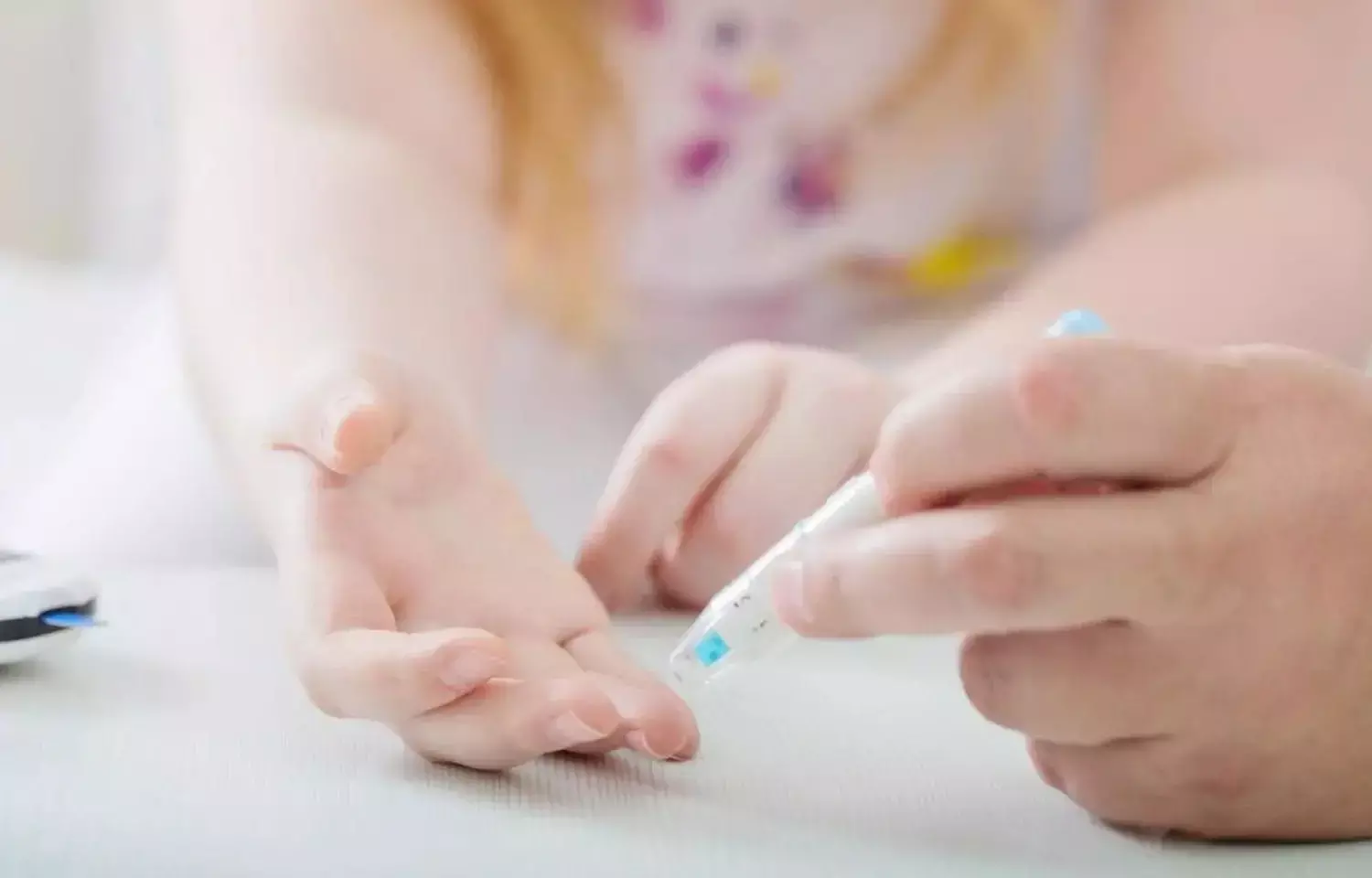- Home
- Medical news & Guidelines
- Anesthesiology
- Cardiology and CTVS
- Critical Care
- Dentistry
- Dermatology
- Diabetes and Endocrinology
- ENT
- Gastroenterology
- Medicine
- Nephrology
- Neurology
- Obstretics-Gynaecology
- Oncology
- Ophthalmology
- Orthopaedics
- Pediatrics-Neonatology
- Psychiatry
- Pulmonology
- Radiology
- Surgery
- Urology
- Laboratory Medicine
- Diet
- Nursing
- Paramedical
- Physiotherapy
- Health news
- Fact Check
- Bone Health Fact Check
- Brain Health Fact Check
- Cancer Related Fact Check
- Child Care Fact Check
- Dental and oral health fact check
- Diabetes and metabolic health fact check
- Diet and Nutrition Fact Check
- Eye and ENT Care Fact Check
- Fitness fact check
- Gut health fact check
- Heart health fact check
- Kidney health fact check
- Medical education fact check
- Men's health fact check
- Respiratory fact check
- Skin and hair care fact check
- Vaccine and Immunization fact check
- Women's health fact check
- AYUSH
- State News
- Andaman and Nicobar Islands
- Andhra Pradesh
- Arunachal Pradesh
- Assam
- Bihar
- Chandigarh
- Chattisgarh
- Dadra and Nagar Haveli
- Daman and Diu
- Delhi
- Goa
- Gujarat
- Haryana
- Himachal Pradesh
- Jammu & Kashmir
- Jharkhand
- Karnataka
- Kerala
- Ladakh
- Lakshadweep
- Madhya Pradesh
- Maharashtra
- Manipur
- Meghalaya
- Mizoram
- Nagaland
- Odisha
- Puducherry
- Punjab
- Rajasthan
- Sikkim
- Tamil Nadu
- Telangana
- Tripura
- Uttar Pradesh
- Uttrakhand
- West Bengal
- Medical Education
- Industry
Black people with type 1 diabetes most affected by DKA during COVID-19 pandemic: Study

USA: A recent study in The Journal of Clinical Endocrinology & Metabolism revealed an increase in the frequency of diabetic ketoacidosis (DKA) among type 1 diabetes (T1D) patients, with the highest frequency seen in Black patients during the COVID-19 pandemic.
"Our findings highlight the urgent need for improved strategies for DKA prevention among TID patients -- not only under the pandemic but under all conditions," Andrew R Lavik, Cincinnati Children's Hospital Medical Center, University of Cincinnati College of Medicine, and colleagues wrote in their study. They added, "this should be ensured especially among populations most affected by health inequities."
The study was conducted with the objective to examine United States (US) trends in diabetic ketoacidosis among patients with type 1 diabetes during the COVID-19 pandemic at seven large US medical centers and the factors associated with these trends.
For this purpose, the researchers compared DKA events among children and adults with T1D during COVID-19 surge 1 (March-May 2020) and COVID-19 surge 2 (August-October 2020) to the same periods in 2019. Descriptive statistics and Chi-square tests were used for performing analysis.
Based on the study, the researchers reported the following:
- There was no difference in the absolute number of T1D patients experiencing DKA in 2019 vs 2020. However, a higher proportion of non-Hispanic Blacks (NHB) experienced DKA in 2019 than non-Hispanic Whites (NHW) (44.6% vs 16.0%), and this disparity persisted during the COVID-19 pandemic (48.6% vs 18.6%).
- DKA was less common among patients on continuous glucose monitor (CGM) or insulin pump in 2020 compared to 2019 (CGM: 13.2% vs 15.0%; insulin pump: 8.0% vs 10.6%).
- In contrast to annual DKA totals, a higher proportion of patients had DKA during COVID-19 surges 1 and 2 compared to the same months in 2019 (surge 1: 7.1% vs 5.4%; surge 2: 6.6% vs 5.7%).
To conclude, DKA frequency increased among T1D patients during COVID-19 surges with highest frequency among NHB.
Reference:
Andrew R Lavik, MD PhD, Osagie Ebekozien, MD MPH, Nudrat Noor, MS PhD, G Todd Alonso, MD, Sarit Polsky, MD MPH, Scott M Blackman, MD PhD, Justin Chen, BS, Sarah D Corathers, MD, Carla Demeterco-Berggren, MD PhD, Mary Pat Gallagher, MD, Margaret Greenfield, PTA MS CHES, Ashley Garrity, MPH, Saketh Rompicherla, MS, Robert Rapaport, MD, Nana-Hawa Yayah Jones, MD, Trends in type 1 diabetic ketoacidosis during COVID-19 surges at seven US centers: highest burden on non-Hispanic Blacks, The Journal of Clinical Endocrinology & Metabolism, 2022;, dgac158, https://doi.org/10.1210/clinem/dgac158
KEYWORDS: Journal of Clinical Endocrinology & Metabolism, diabetic ketoacidosis, type 1 diabetes, COVID-19 pandemic, Black patients, diabetes, pandemic, COVID-19
Dr Kamal Kant Kohli-MBBS, DTCD- a chest specialist with more than 30 years of practice and a flair for writing clinical articles, Dr Kamal Kant Kohli joined Medical Dialogues as a Chief Editor of Medical News. Besides writing articles, as an editor, he proofreads and verifies all the medical content published on Medical Dialogues including those coming from journals, studies,medical conferences,guidelines etc. Email: drkohli@medicaldialogues.in. Contact no. 011-43720751


